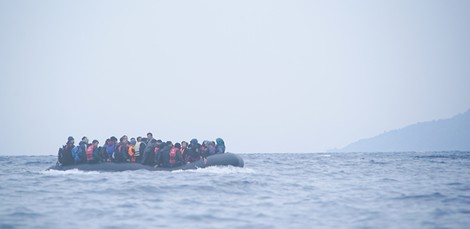Your podcast discovery platform
Curious minds select the most fascinating podcasts from around the world. Discover hand-piqd audio recommendations on your favorite topics.

piqer for: Global finds Health and Sanity Doing Good
Bangalore-based Rashmi Vasudeva's journalism has appeared in many Indian and international publications over the past decade. A features writer with over nine years of experience heading a health and fitness supplement in a mainstream Indian newspaper, her niche areas include health, wellness, fitness, food, nutrition and Indian classical Arts.
Her articles have appeared in various publications including Mint-Wall Street Journal, The Hindu, Deccan Herald (mainstream South Indian newspaper), Smart Life (Health magazine from the Malayala Manorama Group of publications), YourStory (India's media technology platform for entrepreneurs), Avantika (a noir arts and theatre magazine), ZDF (a German public broadcasting company) and others.
In 2006, she was awarded the British Print-Chevening scholarship to pursue a short-term course in new-age journalism at the University of Westminster, U.K. With a double Masters in Globalisation and Media Studies from Aarhus Universitet (Denmark), University of Amsterdam and Swansea University in Wales, U.K., she has also dabbled in academics, travel writing and socio-cultural studies. Mother to a frisky toddler, she hums 'wheels on the bus' while working and keeps a beady eye on the aforementioned toddler's antics.
Human Smuggling Into Europe: What Criminologists Have Discovered
It is a “pure, free market” devoid of monopolies; there is little intervention and virtually no regulation beyond the market’s own. The demand is exploding and the competition fierce. It is also one of the fastest growing markets in the world.
Sounds ideal? Far from it. This is the world's murkiest market - the smuggling of people into Europe. And finally, somebody is trying to look inside its caverns.
Criminologists from Cambridge are combing through migrant court cases and wiretapping evidence, trolling Facebook groups and sifting through any information they can lay their hands on to analyse the networks behind human smuggling. As the article clarifies, this is not human trafficking - it is not about control over people. The smugglers' fortune lies in the successful crossing of borders - for a hefty fee. A combination of factors, arising out of wars, famine, poverty and globalisation, have caused demand to skyrocket.
Dr Paolo Campana and his colleagues at Cambridge's Institute of Criminology have created quantitative databases to serve as models for smuggling networks. Their research included travelling to towns in Greece and Italy to speak with migrants, interviewing smugglers, understanding pricing networks such as "hawala", etc. The result is a fascinating insight into not just the practical aspects of smuggling but also how individual morality, trust and reputation play a role in such a ferocious marketplace.
Another key point of the research is figuring out the role digital forums are playing in the formation of networks. Smugglers often "advertise" in groups to attract customers, decide prices and promote their credentials in the form of recommendations from other migrants. "Premium" services that promise "fast-track" smuggling routes are offered as well.
That this market is a fortune-hunter's dream and demand is only snowballing is a sad commentary on one of the biggest crises the world is witness to and wants to be blind about.
